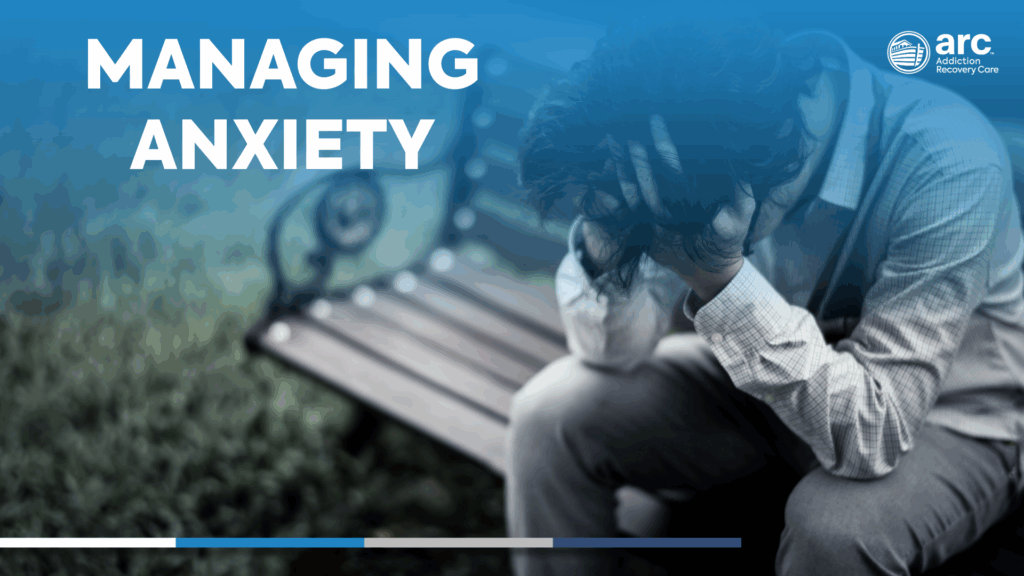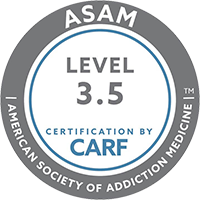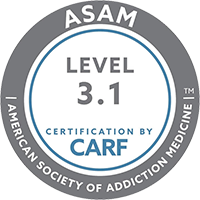
Anxiety is a common and often overwhelming experience, especially for those navigating the path of recovery from substance use disorders. At Addiction Recovery Care (ARC), we understand that managing anxiety without turning to substances is not only possible but essential for long-term recovery. We hope these strategies can help individuals cope with anxiety in healthy, sustainable ways.
Understanding the Connection Between Anxiety and Substance Use
Many individuals with substance use disorders also experience anxiety disorders. Research from the National Institute on Drug Abuse (NIDA) indicates that approximately 43% of people with substance use disorders show symptoms of mental health conditions such as depression and anxiety. Often, anxiety begins before substance use, leading individuals to self-medicate with drugs or alcohol to alleviate their symptoms. While substances may offer temporary relief, they ultimately make anxiety worse and hinder the recovery process.
Healthy Strategies for Managing Anxiety in Recovery
Managing anxiety during recovery requires a balanced approach that includes lifestyle changes, practical coping mechanisms, and professional support. At Addiction Recovery Care (ARC), clients are encouraged to adopt healthy, sustainable habits that not only ease anxiety but also support long-term recovery.
Healthy Habits
Consistent Sleep:
Establishing a regular sleep schedule and aiming for 7–8 hours of restful sleep each night helps regulate moods and improves emotional resilience. Quality sleep is a foundational part of managing stress and anxiety.
Regular Exercise:
Engaging in physical activity releases endorphins, natural chemicals in the brain that enhance mood and reduce stress. Whether it’s walking, running, yoga, or strength training, movement can be a powerful anxiety-reducing tool.
Balanced Diet:
Nutrient-rich foods support physical and mental health. A balanced diet can stabilize blood sugar levels and improve brain function, both of which are essential for emotional regulation.
Limit Caffeine:
Caffeine can increase anxiety symptoms and disrupt sleep patterns. For individuals in recovery, reducing or eliminating caffeine is a crucial step in maintaining stability.
Coping Strategies
Mindfulness:
Practices such as meditation, deep breathing, and yoga help individuals stay grounded in the present moment. Mindfulness can reduce rumination and offer a sense of control when anxiety feels overwhelming.
Grounding Techniques:
Grounding exercises engage the senses to anchor individuals in the here and now. For example, noticing five things you can see or three things you can touch can help shift focus away from anxious thoughts.
Deep Breathing:
Simple, slow, and deep breathing exercises can calm the nervous system, reduce heart rate, and provide an immediate sense of relief during anxious moments.
Journaling:
Writing down thoughts and emotions offers a way to process internal experiences and uncover patterns or triggers. It can also be a helpful tool for setting goals and tracking progress in recovery.
Challenge Negative Thoughts:
Learning to identify and reframe negative or irrational thoughts is a key element of managing anxiety. Cognitive restructuring techniques can reduce the impact of anxiety and build healthier thinking patterns.
Professional Support
Therapy:
Evidence-based therapies are highly effective for treating anxiety. Therapy offers a safe space to explore root causes and learn personalized coping strategies.
Support Groups:
Connecting with others who are also on a recovery journey provides a valuable sense of community. Support groups encourage openness, accountability, and shared strength.
Medication:
In some cases, non-addictive medications may be appropriate to help manage anxiety symptoms. It’s essential to consult with a qualified healthcare provider to explore this option as part of an integrated treatment plan.
Taking the Next Step
Managing anxiety without substances is a journey that requires commitment, support, and the right tools. If you or a loved one is struggling with anxiety and substance use, ARC is here to help. Our compassionate team is dedicated to guiding individuals toward lasting recovery and a brighter future.
For more information or to begin your recovery journey, visit www.arccenters.com or call us at 888-818-1434.
Remember, you are not alone. With the proper support and strategies, overcoming anxiety without substances is achievable!





